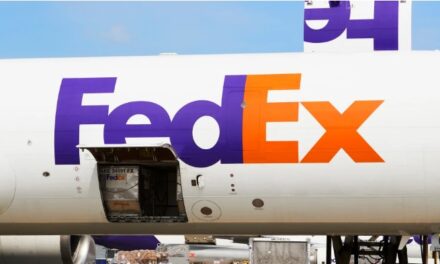
US government “could save $7bn” with greener shipping
Federal agencies including USPS should increase their efforts to buy transportation services using less petroleum, according to a new report from an environmental NGO. The American Clean Skies Foundation said federal agencies spend $150bn on transportation each year, but that a “buy American” policy for fuel, along with reduction in fuel use, would deliver around $7bn in cost savings a year, cut fuel use by billions of gallons, and create jobs in America’s fuel industry.
The “Oil Shift” report, written by Warren G Lavey and Gregory C Staple, singled out the US Postal Service as a particular example, since it spends more to reimburse its transport suppliers for fuel than all other federal agencies spend on fuel for their owned or leased vehicles.
Reducing petroleum consumption by 20% in its transportation services and fleet would save USPS $215m to $350m a year while cutting carbon emissions 14-24%, said the report.
Yet the savings available from targeting the Postal Service’s third party transport providers would “dwarf” these savings, the report added.
Third-party transportation firms account for 80% of USPS petroleum consumption and 40% of its overall greenhouse gas emissions.
The report highlighted FedEx, which has a $1.5bn transport contract with USPS and a similar deal with the Department of Defense, as one provider that could bring improvements.
The postal fleet of 210,331 vehicles numbers more than the US military fleet, using $488.9m worth of fuel in 2010 (153.5m gallons), with only $5.4m worth of non-petroleum fuel.
The report said USPS is planning to cut its fuel use by 32.8m gallons a year through vehicle replacement, fleet reduction and route optimisation measures, saving 3-6% of its budget.
USPS has targeted a 20% reduction in fuel use and emissions by 2020, going from a 2008 baseline, and by 2010 had achieved a 5% reduction in petroleum use and a 3% cut in emissions, by encouraging suppliers and including sustainability clauses in transport contracts.
Along with the Postal Service and the federally-owned fleet of around 660,000 vehicles, the report also points to the $100bn spent by the government on freight transport each year as a target for fuel savings and more domestic fuel use.
Lavey, co-author of the report and the Foundation’s senior regulatory counsel, said: “Most people are probably unaware that the freight services which are used by the government and major product suppliers provide a 30-times larger opportunity for oil savings and emissions reductions than the cars and trucks that the government owns itself.”
Domestic fuel
Among its recommendations, the report pushes the use of natural gas fuels – either compressed natural gas (CNG) or liquified natural gas (LNG) – which it said offered “huge cost savings” over petroleum-based fuels in the United States.
Recent estimates have suggested that with US natural gas production, a dollar per gallon savings could be achieved, said the report. US petroleum fuels cost in the region of $3 to $4 per gallon at present at the filling station.
At present CNG accounts for just 0.1% of the fuel used in federal fleet vehicles, with 77% gasoline and 19% diesel. Biofuels, which account for a few percentage points in the federal fleet, would also offer a domestic alternative.
Among federal transport partners, the report highlighted FedEx for its fleet of 400 electric and hybrid vehicles, as well as vehicles running on biodiesel, propane and natural gas.
It also pointed to UPS, which has a $100m contract with the Postal Service, as having a fleet of 2,500 CNG, LNG, propane, electric and hybrid vehicles.
The report recommended federal agencies report on the meeting of annual targets from 2014 to reduce fuel use and increase their use of alternative fuels. It said USPS had shown the feasibility of such an approach already.
From 2015, the NGO said federal agencies should require transport carriers to use alternative fuels for at least 5% of their fuel for federal contracts. This requirement should increase by two percentage points each year from 2015 to 2025, the report suggested.
Lavey said federal agencies already have the legal authority to track oil use and pollution in their shipping services.
“Agencies also have the authority to begin buying those services from freight carriers that increasingly rely on cleaner, domestically sourced alternative fuels,” he said.












